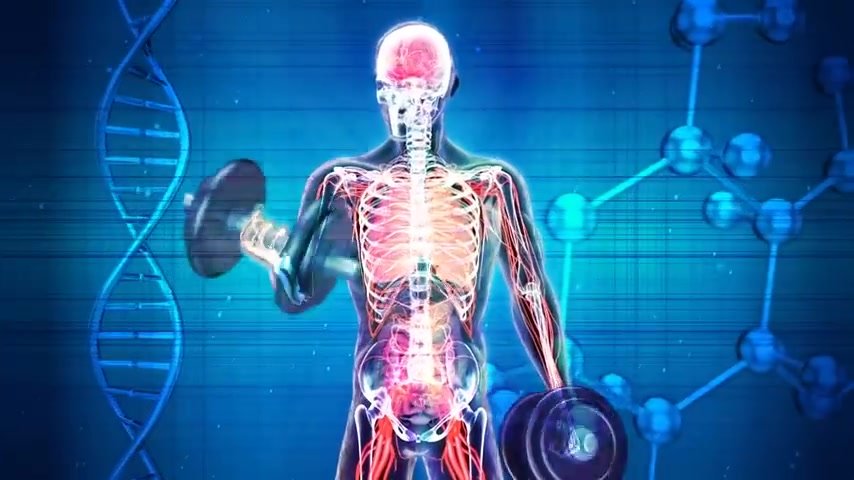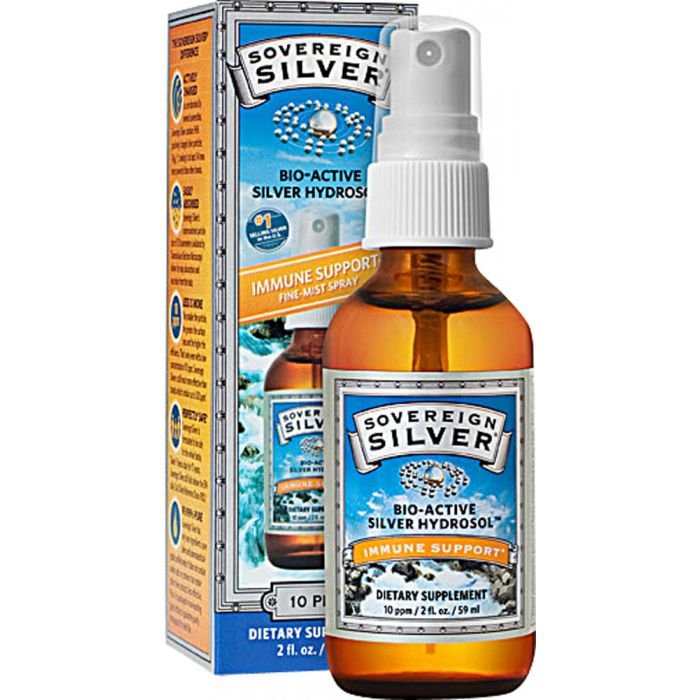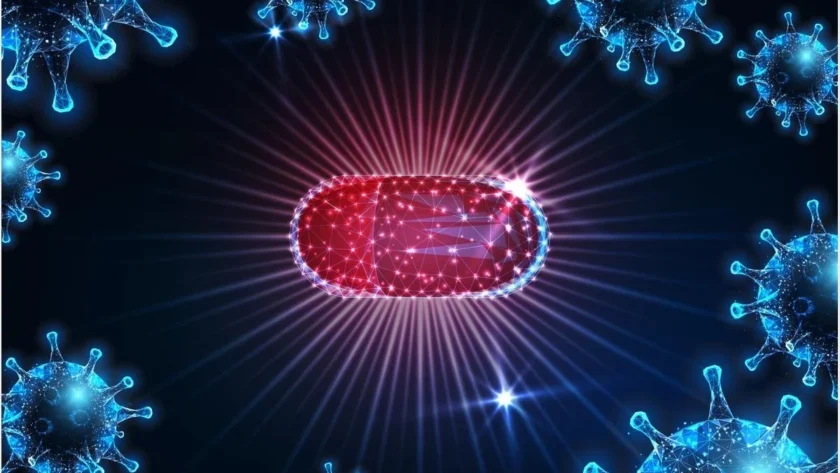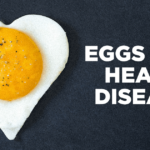Table of Contents
Autophagy, a cellular process of “self-eating,” is gaining attention for its remarkable antiviral properties. This article explores how autophagy acts as a potent defense mechanism against viruses, bacteria, and other pathogens. We’ll delve into its role in supporting both innate and adaptive immunity, its ability to clear out latent viruses, and how it interacts with various health conditions. Additionally, we’ll discuss natural ways to trigger autophagy and complementary remedies that enhance its antiviral effects. Understanding autophagy’s antiviral capabilities offers exciting possibilities for improving overall health and resilience against infections.
Antiviral Effect of Autophagy
so let’s talk about the antiviral effect of autophagy what is autophagy it means self eat your body has a certain mechanism that it can break down things and recycle them autophagy is mainly known for breaking down damaged proteins in the body
but it also can deal with clear out intracellular viruses bacteria fungus candida even nanobacteria that’s hiding in the biofilms which are a little calcium igloos it’s quite fascinating that you have in your body right now this defense mechanism this survival mechanism to keep these microbes outside the body
Summary:
- Autophagy means “self-eat” and involves the body breaking down and recycling materials.
- It clears out damaged proteins, intracellular viruses, bacteria, fungi, candida, and nanobacteria in biofilms.
- Autophagy acts as a defense and survival mechanism.
Autophagy and the Immune System

autophagy works with both parts of the immune system on one hand you have the innate immune system which is something you’re born with and you have certain mechanisms like phagocytosis where the neutrophils and the phagocytes actually engulf viruses
and other microbes and eat them and then you also have the natural killer cells which kill cancer cells and viruses that’s on the innate part but it also is affected on the adaptive part which is the other part of the immune system that’s also called the acquired immune system where it
learns from experience what will happen in autophagy is that it will break down a virus and it’ll take a part of that virus and present it to the t cells it’ll be equivalent to taking a picture of some bad guy and giving it to immigration so if they try to cross the border they see this guy and then they take them down
Summary:
- Autophagy supports both the innate and adaptive immune systems.
- Innate immune system includes mechanisms like phagocytosis and natural killer cells.
- Adaptive immune system learns from experience; autophagy helps present parts of viruses to T cells, aiding in their identification.
Challenges and Importance of Autophagy
there are certain killers t cells that can kill viruses but they need help to be able to identify and differentiate the good guys from the bad guys certain viruses over time have evolved and they can resist autophagy
but it really depends on the strength of your immune system and there’s other variables as well there are certain viruses that can get through the radar and exist inside your body inside the cell but we have autophagy as a mechanism to clear out these pathogens and especially latent viruses

what is a latent virus it’s a virus that goes in remission and kind of waits until the timing is just right and then it comes out so it might be reactivated when you’re under stress
for example you’re getting older and you’re nutritionally deficient and it comes out but latent viruses are the dormant viruses that are not reproducing maybe a little bit but not to the point where your immune system can see them and they just sit and they wait autophagy is a really good mechanism to clean out these so in the future if you do go through stress those viruses are not there
Summary:
- Killer T cells need help to identify and kill viruses.
- Some viruses evolve to resist autophagy, depending on the immune system’s strength.
- Latent viruses can hide and reactivate under stress, aging, or nutritional deficiencies.
- Autophagy helps clear out latent viruses to prevent future reactivation.
Subclinical Symptoms and Chronic Conditions
now most viruses give subclinical type symptoms so in other words you might have been exposed to epstein-barr virus and then when it gets reactivated it’s not going to necessarily create the full-blown infection

it may just cause you to be tired and run down so it may give you a part of that infection not the full-blown infections you might have sore muscles
for example actually there’s quite a few people who have arthritis or chronic fatigue syndrome or fibromyalgia which has this subclinical partially active virus situation going on in which case you know either the tophagi is not working or there’s some other stress state that they’re in and then you have other viruses like the herpes virus that can come out as its full-blown infection
- Summary:
- Many viruses cause subclinical symptoms, like fatigue or muscle soreness.
- Conditions like arthritis, chronic fatigue syndrome, and fibromyalgia may involve partially active viruses.
- Full-blown infections, like those from herpes virus, can occur when autophagy or immune response is compromised.
Importance of Autophagy in Reducing Viral Loads
autophagy is very important in decreasing viral loads and decreasing pathogens in general and if you’re not familiar with all the things that trigger autophagy

here are some other really important remedies colloidal silver very very potent for viruses elderberry extract that binds to those little spikes in the viruses preventing them from going into your body garlic a very powerful antiviral olive leaf extract and taking zinc can do a lot for viruses as far as decrease the duration of infection increase your resistance against getting an infection and if zinc gets in the cell it can actually kill certain viruses
Summary:
- Autophagy is crucial for reducing viral loads and pathogens.
- Remedies that help with viruses:
- Colloidal silver
- Elderberry extract
- Garlic
- Olive leaf extract
- Zinc
Summary
In this topic, we’re talking about the antiviral effects of autophagy. Autophagy means “self-eat.” It’s a mechanism in the body that can break down things and recycle them. Autophagy is mainly known for breaking down damaged proteins in the body, but it also has unique antiviral effects.
Autophagy can deal with:
• Viruses
• Bacteria
• Fungus
• Candida
• Biofilms/nanobacteria
Autophagy works with both parts of the immune system as a defense mechanism to keep harmful microbes outside of the body. Certain viruses have evolved and can resist autophagy. In some cases, these viruses can get through, and this really depends on the strength of your immune system as well as other variables.
Other important remedies for viruses:
• Colloidal silver
• Elderberry
• Garlic
• Olive leaf
• Zinc
DATA
https://www.ncbi.nlm.nih.gov/pmc/articles/PMC3185561
Get my Free Guide on Autophagy
FAQ
Can autophagy get rid of viruses?
Yes, autophagy can play an important role in eliminating viruses from infected cells. Autophagy is an evolutionarily conserved cellular process that degrades and recycles damaged organelles, misfolded proteins, and invading pathogens, including viruses [1][2].
When a cell is infected by a virus, it can initiate autophagy as an antiviral defense mechanism. Autophagy can degrade viral components, disrupt viral replication, and prevent the spread of the virus to neighboring cells [1][2]. The degraded viral components can also be presented to the immune system to stimulate an adaptive immune response against the virus [1].
However, many viruses have evolved strategies to evade or even hijack the autophagy process for their own benefit. Some viruses can inhibit autophagy to avoid degradation, while others induce autophagy and then use the autophagosomes as sites for viral replication or as a means to promote viral egress and spread [1][2]. The interplay between autophagy and viral infections is complex, with autophagy playing both proviral and antiviral roles depending on the specific virus and host cell type.
What is the role of autophagy in viral infections?
Autophagy plays a multifaceted role in viral infections, with both antiviral and proviral functions [1][2]:
Antiviral functions of autophagy:
- Autophagy can degrade viral components, disrupt viral replication, and prevent viral spread.
- Autophagy can facilitate the presentation of viral antigens to the immune system, stimulating an adaptive immune response.
- Autophagy can regulate the innate immune response, such as the production of type I interferons, to limit viral infection.
Proviral functions of autophagy:
- Some viruses can inhibit autophagy to avoid degradation and immune detection.
- Other viruses can induce autophagy and hijack autophagosomes as sites for viral replication or as a means to promote viral egress and spread.
- Viruses can exploit autophagy-related processes, such as organelle degradation and metabolic regulation, to support their own replication.
The overall impact of autophagy on viral infections is complex and depends on the specific virus, the host cell type, and the stage of infection. Viruses have evolved diverse strategies to either exploit or evade the autophagy pathway.
What are selective autophagy receptors in antiviral defense?
Selective autophagy receptors play a crucial role in the antiviral functions of autophagy. These receptors selectively recognize and target specific cargoes, such as viral components or virus-infected organelles, for degradation by the autophagy pathway [5].
Some key selective autophagy receptors involved in antiviral defense include:
- p62/SQSTM1: Recognizes and targets ubiquitinated viral proteins for autophagosomal degradation.
- NDP52 (CALCOCO2): Binds to viral components and recruits them to autophagosomes for degradation.
- Optineurin (OPTN): Interacts with ubiquitinated viral proteins and targets them for autophagy-mediated clearance.
- TAX1BP1: Facilitates the recruitment of viral components to autophagosomes for degradation.
These selective autophagy receptors act as crucial links between the recognition of viral components and their targeted degradation by the autophagy machinery. Viruses, in turn, have evolved strategies to evade or counteract the actions of these selective autophagy receptors, highlighting the ongoing evolutionary arms race between viruses and the host cell’s antiviral autophagy defenses.
What drugs block autophagy?
Several pharmacological agents have been identified that can inhibit the autophagy process, and these are often used as research tools or potential therapeutic agents in various diseases, including cancer [6]:
- Chloroquine (CQ) and hydroxychloroquine (HCQ):
- These antimalarial drugs inhibit autophagy by blocking the fusion of autophagosomes with lysosomes, preventing the degradation of autophagy cargo.
- Bafilomycin A1 (Baf A1):
- This macrolide antibiotic inhibits the vacuolar-type H+-ATPase, which is required for the acidification of lysosomes, thereby blocking autophagy.
- 3-Methyladenine (3-MA):
- This compound inhibits the class III phosphoinositide 3-kinase (PI3K), which is involved in the initiation of autophagosome formation.
- Wortmannin:
- Another PI3K inhibitor that can block the early stages of autophagy.
- Spautin-1:
- This small molecule inhibits the activity of USP10 and USP13, which are involved in the regulation of autophagy.
These autophagy inhibitors have been used in various research studies and clinical trials to investigate the role of autophagy in different diseases, including viral infections and cancer. However, it is important to note that the specificity and potency of these inhibitors can vary, and their use may have off-target effects that need to be considered.
Does autophagy kill viruses?
Yes, autophagy can play an important role in eliminating viruses from infected cells. Autophagy is a cellular process that can degrade and recycle damaged organelles, misfolded proteins, and invading pathogens, including viruses [1][2].
When a cell is infected by a virus, it can initiate autophagy as an antiviral defense mechanism. Autophagy can directly degrade viral components, disrupt viral replication, and prevent the spread of the virus to neighboring cells [1][2]. The degraded viral components can also be presented to the immune system to stimulate an adaptive immune response against the virus [1].
However, the relationship between autophagy and viral infections is complex, as many viruses have evolved strategies to evade or even hijack the autophagy process for their own benefit. Some viruses can inhibit autophagy to avoid degradation, while others induce autophagy and then use the autophagosomes as sites for viral replication or as a means to promote viral egress and spread [1][2].
The overall impact of autophagy on viral infections depends on the specific virus, the host cell type, and the stage of infection. Viruses have evolved diverse strategies to either exploit or evade the autophagy pathway, highlighting the ongoing evolutionary arms race between viruses and the host cell’s antiviral defenses.
Does autophagy kill HPV?
There is evidence that autophagy can play a role in the degradation and clearance of human papillomavirus (HPV) infections, though the relationship is complex.
Some studies have shown that autophagy can target and degrade HPV viral proteins and components, thereby inhibiting HPV replication and reducing viral load in infected cells [1][2]. The degradation of HPV components by autophagy can also lead to the presentation of viral antigens to the immune system, stimulating an adaptive immune response against the virus [1].
However, HPV has also been observed to manipulate the autophagy pathway for its own benefit. Certain HPV proteins can interfere with the autophagy process, either by inhibiting autophagy induction or by hijacking autophagosomes for viral replication and assembly [1][2]. This allows the virus to evade degradation and potentially enhance its own survival and spread.
The overall impact of autophagy on HPV infections likely depends on the specific HPV strain, the stage of infection, and the host cell’s ability to mount an effective autophagic response. While autophagy can act as an antiviral mechanism against HPV, the virus has also evolved strategies to counteract or exploit the autophagy pathway for its own survival and propagation.
Does autophagy kill bacteria?
Yes, autophagy can play a crucial role in the clearance of bacterial infections by degrading and eliminating invading bacterial pathogens.
Autophagy is a cellular process that can target and degrade a variety of intracellular pathogens, including bacteria. When a cell is infected by bacteria, it can initiate a specialized form of autophagy called xenophagy, which specifically targets and engulfs the bacterial components for degradation within autophagosomes [1][2].
The degradation of bacterial components by autophagy can have several beneficial effects for the host cell:
- Elimination of the bacterial pathogen: Autophagy can directly degrade and eliminate the invading bacteria, preventing their replication and spread.
- Presentation of bacterial antigens: The degraded bacterial components can be presented to the immune system, stimulating an adaptive immune response against the infection.
- Regulation of the immune response: Autophagy can modulate the innate immune response, such as the production of antimicrobial peptides and inflammatory cytokines, to control the bacterial infection.
However, like viruses, some bacteria have also evolved strategies to evade or manipulate the autophagy process for their own benefit. Certain bacterial pathogens can inhibit the initiation of autophagy, block the fusion of autophagosomes with lysosomes, or even hijack the autophagy machinery to promote their own replication and survival within the host cell [1][2].
The interplay between autophagy and bacterial infections is complex and can vary depending on the specific bacterial pathogen, the host cell type, and the stage of the infection. Nonetheless, autophagy remains an important cellular defense mechanism against a wide range of bacterial infections.
Autophagy virus
Autophagy is a cellular process that can play a complex and multifaceted role in viral infections. Viruses have evolved diverse strategies to either exploit or evade the autophagy pathway for their own benefit [1][2]:
Antiviral functions of autophagy:
- Autophagy can degrade viral components, disrupt viral replication, and prevent viral spread.
- Autophagy can facilitate the presentation of viral antigens to the immune system, stimulating an adaptive immune response.
- Autophagy can regulate the innate immune response, such as the production of type I interferons, to limit viral infection.
Proviral functions of autophagy:
- Some viruses can inhibit autophagy to avoid degradation and immune detection.
- Other viruses can induce autophagy and hijack autophagosomes as sites for viral replication or as a means to promote viral egress and spread.
- Viruses can exploit autophagy-related processes, such as organelle degradation and metabolic regulation, to support their own replication.
The overall impact of autophagy on viral infections is complex and depends on the specific virus, the host cell type, and the stage of infection. Viruses have evolved diverse strategies to either exploit or evade the autophagy pathway, highlighting the ongoing evolutionary arms race between viruses and the host cell’s antiviral defenses.
Does autophagy kill cancer cells?
Autophagy can play a complex and context-dependent role in cancer, with both pro-survival and anti-cancer functions [6]:
Pro-survival functions of autophagy in cancer:
- Autophagy can help cancer cells adapt to nutrient deprivation and other stressors, promoting their survival and growth.
- Autophagy can remove damaged organelles and misfolded proteins, maintaining cellular homeostasis and supporting cancer cell survival.
Anti-cancer functions of autophagy:
- Autophagy can induce cell death in some cancer cells, especially when other cell death pathways are impaired.
- Autophagy can suppress tumor growth by degrading oncogenic proteins and disrupting signaling pathways that drive cancer progression.
- Autophagy can enhance the immune system’s ability to recognize and eliminate cancer cells.
The overall impact of autophagy on cancer cells depends on factors such as the cancer type, the stage of cancer progression, the specific genetic and metabolic alterations in the cancer cells, and the tumor microenvironment.
In some cases, inhibiting autophagy can sensitize cancer cells to chemotherapy or radiation therapy, making them more susceptible to cell death. In other cases, enhancing autophagy may be a therapeutic strategy to induce cancer cell death or inhibit tumor growth.
The complex and context-dependent role of autophagy in cancer highlights the need for a deeper understanding of the underlying mechanisms and the development of targeted therapies that can harness the anti-cancer potential of autophagy.
Autophagy fasting
Fasting and caloric restriction have been shown to induce autophagy, which can have various health benefits:
- Cellular cleanup and renewal:
- Fasting triggers autophagy, which helps remove damaged organelles, misfolded proteins, and other cellular waste, leading to cellular renewal and improved function.
- Metabolic regulation:
- Autophagy induced by fasting can help regulate metabolism, improve insulin sensitivity, and reduce inflammation.
- Neuroprotection:
- Fasting-induced autophagy has been linked to neuroprotective effects, potentially reducing the risk of neurodegenerative diseases.
- Anti-aging effects:
- Autophagy activated by fasting may contribute to longevity and slow down the aging process by removing damaged cellular components and promoting cellular homeostasis.
- Potential anti-cancer effects:
- Fasting-induced autophagy may have anti-cancer properties by inhibiting tumor growth and sensitizing cancer cells to certain therapies.
However, it’s important to note that the relationship between fasting, autophagy, and health outcomes is complex and can vary depending on factors such as the duration and frequency of fasting, the individual’s health status, and the specific disease or condition being studied.
Ongoing research is exploring the potential therapeutic applications of fasting-induced autophagy, particularly in the context of various diseases and age-related conditions. Understanding the mechanisms and optimizing the use of fasting as a means to modulate autophagy remains an active area of scientific investigation.
Autophagy Science
Autophagy is a fundamental cellular process that has been extensively studied in the field of biology and medicine. Here are some key aspects of the science behind autophagy:
- Mechanism of autophagy:
- Autophagy involves the formation of double-membrane vesicles called autophagosomes, which engulf and degrade cellular components, including organelles, proteins, and pathogens.
- The process is regulated by a set of autophagy-related (Atg) genes and proteins that orchestrate the initiation, formation, and maturation of autophagosomes.
- Selective autophagy:
- Autophagy can selectively target and degrade specific cargoes, such as damaged organelles, protein aggregates, or invading pathogens, through the action of specialized autophagy receptors.
- These receptors recognize and bind to the target cargo, facilitating its engulfment and degradation by the autophagy machinery.
- Regulation of autophagy:
- Autophagy is regulated by various signaling pathways, including the mTOR (mechanistic target of rapamycin) pathway, which acts as a master regulator of autophagy induction.
- Environmental factors, such as nutrient availability, growth factors, and cellular stress, can modulate the activity of these signaling pathways and, consequently, the level of autophagy.
- Autophagy and disease:
- Dysregulation of autophagy has been implicated in the pathogenesis of various diseases, including neurodegenerative disorders, cancer, autoimmune diseases, and infectious diseases.
- Understanding the role of autophagy in these diseases has led to the development of potential therapeutic strategies targeting the autophagy pathway.
- Autophagy research methods:
- Researchers employ a variety of techniques to study autophagy, including microscopy, biochemical assays, genetic manipulations, and the use of pharmacological modulators of autophagy.
- Advances in imaging technologies, such as live-cell imaging and super-resolution microscopy, have provided new insights into the dynamic processes of autophagy.
The science of autophagy is a rapidly evolving field, with ongoing research exploring the fundamental mechanisms, regulation, and therapeutic potential of this cellular process. The continued advancement of our understanding of autophagy has significant implications for the development of novel treatments for a wide range of diseases.




